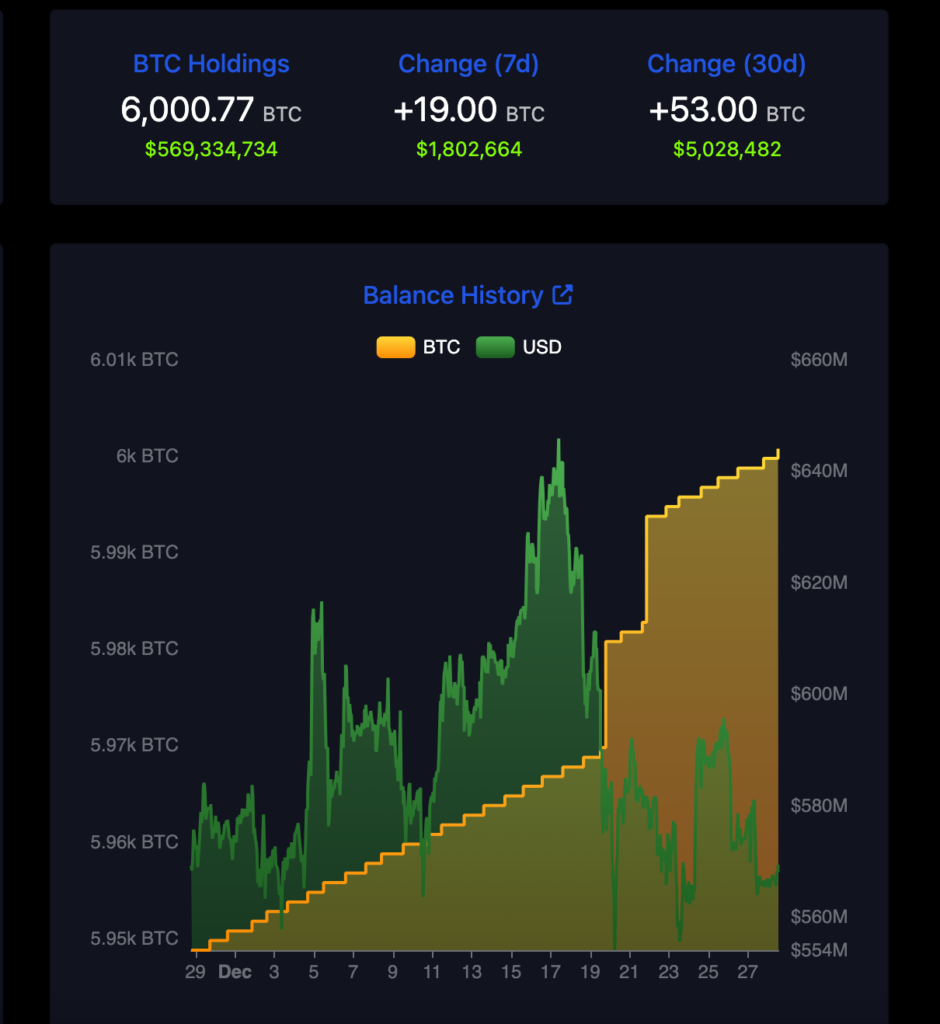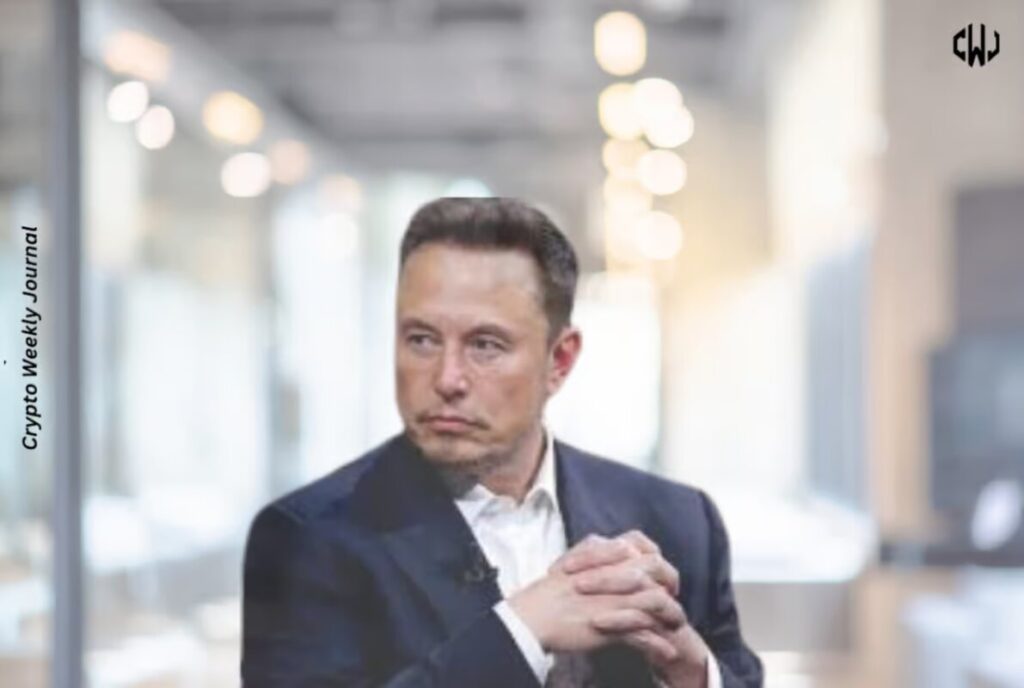- El Salvador’s Bitcoin reserves reached over 6,000 BTC, valued at approximately $569.3 million as of December 29, 2024.
- The country’s Bitcoin holdings have appreciated by over 108% since its initial purchase, showcasing strong investment returns.
- El Salvador became the first country to make BTC legal tender in September 2021, leading global adoption efforts.
El Salvador has taken one more vital step in its relentless commitment to Bitcoin (BTC). It is the sixth country to cross over 6,000 BTC. On December 29, the country’s Bitcoin reserves crossed 6000.77 BTC, valued at approximately $569.3 million, according to the National Bitcoin Office of El Salvador’s portfolio tracker.
This latest acquisition, which saw El Salvador adding Bitcoin to its holdings, represents a big return on investment by the nation. The value of the government’s BTC holdings has risen more than 108.02% from an average purchase price of $45,450, demonstrating a considerable upside since its first purchase.

El Salvador made global headlines on September 6, 2021, when it purchased 200 BTC as part of its landmark decision to become the first nation to make BTC legal tender. According to President Nayib Bukele, this has further cemented the country’s position as a global leader in Bitcoin adoption.
Currently, El Salvador holds the sixth-biggest BTC reserve among nation-states, only behind the United States, China, the United Kingdom, Ukraine, and Bhutan, data from BitBo’s Bitcoin Treasuries suggests. The BTC strategy for the country has been something of a refrain in the Bukele administration; the government tends to purchase one BTC a day but has made several larger purchases.
For instance, just one day after striking a $1.4 billion deal with the International Monetary Fund (IMF), El Salvador bought $1 million worth of BTC. Despite repeated requests by the IMF to reconsider policies on BTC, its latest plea was on December 22 to scale back activities related to BTC. El Salvador has not appeared to budge an inch from its crypto ambitions.
Bitcoin Strategy Drives El Salvador’s Economic Future
In a tweet on December 19, Stacy Herbert, the Director of El Salvador’s National Bitcoin Office, hinted that the country might accelerate its Bitcoin acquisitions soon. A spokesperson from the Bitcoin Office also confirmed that El Salvador has no intention to sell its BTC holdings, with BTC remaining central to the country’s long-term economic strategy.
However, while El Salvador’s BTC-focused strategy continues to evolve, the government has decided to wind down its controversial Chivo wallet. Herbert indicated that private-sector BTC wallets would likely take over the role of serving the population as the government moves away from its own digital wallet service.
As the IMF’s approval of El Salvador’s latest deal remains pending, the coming months could prove pivotal in shaping the country’s financial future. The negotiations, which have been fraught with tension over El Salvador’s BTC policies, could determine the extent to which the IMF supports the country’s Bitcoin-backed plans. If the deal goes through, it would mark the end of a four-year negotiation process, potentially reshaping the future of BTC in national treasury management.
Despite the IMF’s misgivings, President Bukele and his government seem very sure that BTC is the future; the country has continued to increase its stash and deepen its involvement in the cryptocurrency space.
Related | BlackRock’s Ethereum ETF Surges $1.5 Billion Boosting Institutional Confidence in ETH



